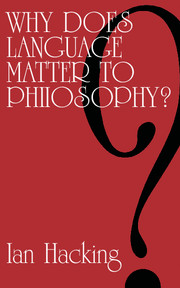4 - Bishop Berkeley's abstractions
Published online by Cambridge University Press: 05 November 2012
Summary
Berkeley was an idealist: that is, an idea-ist. He thought the only things that exist are mental. He said that he did not intend to deny anything the common man believes. Perhaps. Certainly he would not have denied that the wood was full of violets last spring. Even so it is obscure whether he would be saying what you or I say when we talk about the woods. But even if there is no difference between him and us on the topic of spring flowers he did intend to deny many things commonly said nowadays. We all believe that the world is made up, in part, of atoms and molecules. This sort of doctrine infuriated Berkeley. Such tenets of ‘corpuscular philosophy’, associated with Robert Boyle and turned into official English philosophy by Locke, had by 1700 conquered the minds of English intellectuals. Just possibly the ‘common man’ of 1700 had not yet ingested this body of theory, but it is one of the commonplaces of today and Berkeley intended to deny it.
Matter, it was supposed, is composed of tiny corpuscles. Berkeley hated matter with such a passion that J. O. Wisdom, in The Unconscious Origin of Berkeley's Philosophy, has connected it, by a Freudian chain, with Berkeley's bizarre obsession with practical remedies for constipation. However that may be, the matter postulated by Boyle and Locke consisted of particles with primary qualities (shape and size and motion and perhaps hardness) but no secondary qualities (colour, warmth, or taste).
- Type
- Chapter
- Information
- Why Does Language Matter to Philosophy? , pp. 34 - 42Publisher: Cambridge University PressPrint publication year: 1975



